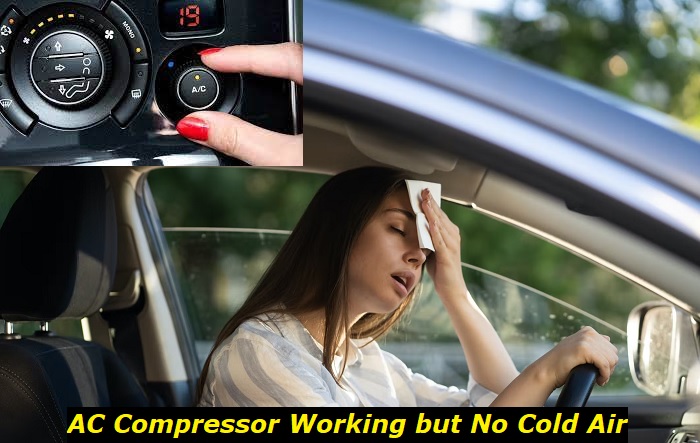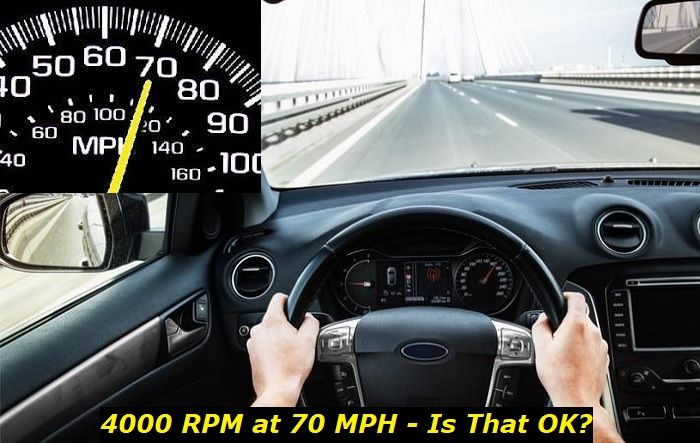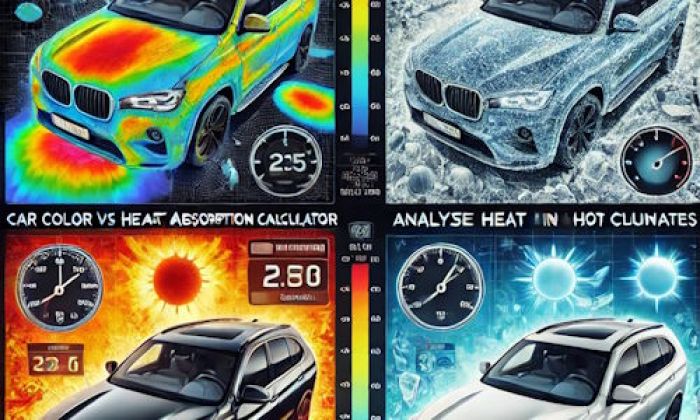If your car AC isn't blowing cold air even though the compressor clutch engages, the compressor may be dead. Also, you may need to wait till cold air starts blowing. Another possible reason is that the freon pressure in the system is pretty low and the system requires freon charging. Maybe, your ventilation system is clogged and the cold air is not entering the cabin of your car.
I will explain everything to you in detail in this article. Make sure you try all simple DIY checks and repairs before you go to the dealership or repair shop to get professional help. AC repair may be very pricey, so let's see what exactly you can do to solve the problem.

Why is my AC blowing hot air even though the compressor works?
So, the situation is pretty puzzling: you push the AC button or set up the climate control system to get some cool air in the car, you hear the compressor engaging and you even feel that your vehicle lost some power due to the AC compressor work. But the cold air doesn't come in through the vents.
First of all, you should make sure the compressor is actually working. We'll come back to this later. Then, you should apply some of the easiest fixes to make sure everything works well and is set as it should. And only if nothing works, you should find some professional help.
Here's what you should try first of all:
- Check if the settings are correct. If you use the climate control system, just check that the settings are right and the cold air should be entering the car. Set the temperature to the lowest possible setting.
- Did you actually press that AC button? In many older vehicles without climate control, the AC button is going to glitch at times. Check if it was engaged correctly and if the light indicator shows that the AC is now on.
- Open the vents. Very often, the cool air can't enter your vehicle just because the vents are closed. So, all the cold air stays under the torpedo and just can't get into the vehicle.
- Change the airflow settings. All cars allow directing the airflow to different parts of the car interior. Direct the flow in different areas - maybe a certain part of the vent system is clogged.
- Wait for some time. Car ACs won't cool the air in the interior for 1 minute. They will need some time for this. It depends on the condition of the AC, the pressure of freon in the system, and some other factors.
Now, these are all the easiest DIY ways to check if your AC is working and solve the problem. Unfortunately, in most cases, they will not help but only allow you to make sure that the problem is there and needs to be solved.
If nothing of these works, you should dig deeper and get your hands a little dirty. It's good if you know something about your vehicle and understand where you can find the compressor and freon lines. If not, just watch some videos and find pics online to see where those parts are located.
Is my AC compressor actually working? Check this up
It's not hard to check if the compressor is engaged when needed. When you turn on the AC, the engine will have to change its RPM for a while and you will feel that the engine got some additional load. Also, the car will lose some power because now some part of its power goes to the AC compressor.
We have another simple method to understand if the compressor is actually working. For this, just follow the simple guide:
- stop your vehicle and let the engine idle;
- turn on the AC;
- engage the parking brake to avoid issues;
- open the hood of your vehicle;
- locate the AC compressor and see if it's working right now;
- locate two metal pipes (freon lines) in your engine bay;
- feel those pipes - one of them should be pretty cold.
This is the easiest way to understand if the AC compressor actually works and can deliver some freon into the system. It's important to know because it's exactly the compressor that can fail most of the time causing no cold air in the vehicle.
Now, if you are sure that the compressor is working properly, it's time to move on and find other reasons why your AC may not be blowing in cold air.
What are other possible problems with your car's AC?
All other issues may require professional help. If at this point you haven't found the reason for your problem, you may want to go to the repair shop or to the dealer and have the air conditioner inspected and repaired.
We don't think it's a good idea to do any DIY repairs with this unit because you can do more harm than good. Also, you need special equipment to diagnose and repair the AC.
Here are the most common problems with car ACs:
- No freon in the system. The system works with refrigerant. This is the special liquid that circulates in the system and allows it to produce enough cold air to maintain the needed temperature in your vehicle. If the pressure of this liquid in the system is too low, the efficiency of the AC will be close to zero.
- The compressor is broken. The compressor may be engaging and even seems like working, but it can fail to move freon through the system. This happens on cars with high mileage and the replacement of the compressor usually helps.
- The lines or radiators are clogged. One more possible issue is the clogged radiators or freon lines. When some dirt or debris get into the system, they can't leave it and start building up in some place. Over time, this place may get clogged and stop freon from proper circulation.
- AC radiator is dirty. For the proper functioning of the AC system in your vehicle, the AC radiator should be clean. You can find it just near the main radiator, usually behind it. Cleaning this radiator is not too hard but it still should be done by professionals.
- Electrical problems. It's possible that your climate control system is glitching and doesn't set up the needed temperature. Also, some wires may be broken or connections may get loose and the AC can't work properly because of that.
- The interior fan is broken. The cold air will get into the interior after the fan blows it out of the system. The fan blows the air through the interior AC radiator. If the fan is not working, there is no way that cold air can get into your car.
In all these cases, the AC compressor may seem like working and even freon lines can sometimes be cold. But you will still suffer from high temperatures in your vehicle because the system is broken.
Repairing your air conditioner by yourself, in these cases, is not an option. You should have the AC inspected by professionals. They have special equipment for this and the diagnosis will take just a couple of minutes.
How can you prevent AC problems from happening?
It's not always possible to predict and prevent these problems just because they often happen unexpectedly. One part may fail spontaneously without any symptoms or signs and you will have to deal with the issue.
But if you maintain the AC and care about your vehicle, it will be easier to avoid such problems. Some common issues with your air conditioner will not bother you.
Here are the most important maintenance tips:
- check the freon pressure every year and add some refrigerant to the system if needed;
- have the compressor and other parts of the AC inspected and diagnosed once every 3-4 years;
- clean the vents from time to time - good chemical cleaning will help you avoid blockages and also contaminations;
- clean radiators once a year or two depending on their condition;
- turn on the AC once every 2 weeks even if you don't need it - just to make the compressor work a little;
- don't turn on the AC when the temperature is above zero - this may cause problems;
- only use high-quality parts and the required type of refrigerant in your AC to avoid issues.
We highly recommend repairing your AC system in a professional repair shop or in a dealership. Modern air conditioning systems are quite complicated and require technical skills and special equipment to be repaired and even diagnosed correctly.
About the authors
The CarAraC research team is composed of seasoned auto mechanics and automotive industry professionals, including individuals with advanced degrees and certifications in their field. Our team members boast prestigious credentials, reflecting their extensive knowledge and skills. These qualifications include: IMI: Institute of the Motor Industry, ASE-Certified Master Automobile Technicians; Coventry University, Graduate of MA in Automotive Journalism; Politecnico di Torino, Italy, MS Automotive Engineering; Ss. Cyril and Methodius University in Skopje, Mechanical University in Skopje; TOC Automotive College; DHA Suffa University, Department of Mechanical Engineering






Add comment